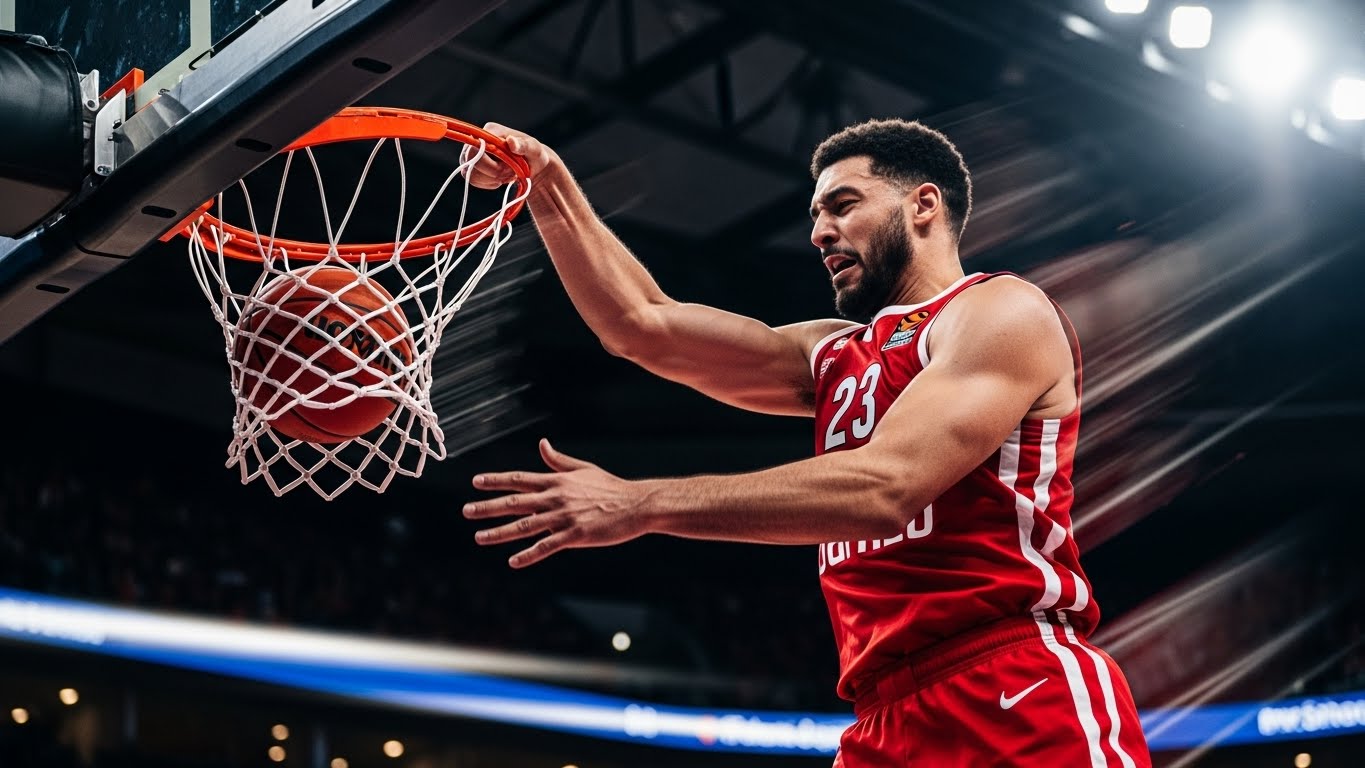Sports have always been more than just physical contests or games. They are stories of human ambition, struggle, unity, and triumph. From the ancient arenas of Greece to the dazzling stadiums of today, sports remain one of the few universal languages that bridge borders and beliefs. Whether it’s the roar of a crowd during a World Cup final, the silence before a decisive tennis serve, or the emotion of an underdog’s victory, the essence of sports lies deep within the human spirit — the desire to push limits, to belong, and to inspire.
The Ancient Roots of Modern Sports
Sports trace their origins back thousands of years. In ancient civilizations, athletic competition was not just entertainment; it was a sacred ritual and a way of honoring gods and heroes. The Olympic Games, which began in ancient Greece around 776 BC, symbolized excellence, discipline, and unity. Athletes competed in events like running, wrestling, and chariot racing, showcasing both physical prowess and mental fortitude.
Across other regions, similar traditions flourished. The Mayans played a ball game called Pok-A-Tok, which was a blend of sport, ritual, and sometimes sacrifice. In ancient China, archery and martial arts reflected both discipline and cultural pride. Meanwhile, the Romans turned athleticism into grand spectacles — gladiators battling in the Colosseum for honor, glory, and survival.
These early competitions laid the foundation for modern sports, emphasizing values that still define athletics today: honor, respect, courage, and the relentless pursuit of greatness.
The Evolution of Organized Sports
As societies evolved, so did their sports. The industrial revolution and urbanization of the 18th and 19th centuries gave rise to structured games, organized leagues, and international competitions. Rules were standardized, associations were formed, and sporting culture began to spread globally.
Football, cricket, and rugby — once local pastimes in Britain — became international sensations. The codification of these sports allowed them to be taught, replicated, and played across continents. The creation of the modern Olympic Games in 1896 reignited the ancient spirit of competition on a global scale. It symbolized not just athletic ability but the unity of nations through peaceful competition.
This period also saw the rise of women in sports. While initially restricted, female athletes slowly began to break barriers. Their inclusion transformed sports from a male-dominated arena into a platform for equality and empowerment. Icons like Billie Jean King, Wilma Rudolph, and Serena Williams later carried that torch forward.
The Psychology Behind Athletic Excellence
At the core of every sport lies an intense mental game. Physical talent alone cannot guarantee success; it’s the mind that often determines victory or defeat. The psychology of sports explores how motivation, focus, confidence, and resilience shape performance.
Athletes endure immense pressure. They face expectations from fans, coaches, and themselves. Handling that pressure requires mental conditioning as much as physical training. Visualization, mindfulness, and goal-setting have become essential tools for top performers. A sprinter imagines the perfect start. A basketball player rehearses the final shot mentally before taking it. A marathon runner visualizes the finish line long before reaching it.
Sports psychologists play a crucial role in helping athletes manage anxiety and maintain concentration. The difference between gold and silver is often a split-second decision — and the clarity of mind to make it.
The Globalization of Sports
In the modern era, sports have transcended borders. The advent of mass media, television, and the internet has turned local games into global spectacles. A football fan in Brazil can support a club in England; a child in India can idolize a basketball player in the United States.
This globalization has not only increased exposure but also economic and cultural exchange. Major events like the FIFA World Cup, the Olympics, and the Super Bowl attract billions of viewers worldwide. Sports merchandise, media rights, and sponsorships have turned the industry into a multi-trillion-dollar global economy.
However, globalization also brings challenges. It can lead to commercialization, where profit sometimes overshadows the purity of play. Yet even in a world driven by money, the raw emotions that sports evoke remain untouched. A child kicking a ball on a dirt field shares the same joy as a professional playing in a billion-dollar stadium.
Technology and the Modern Athlete
Technology has revolutionized sports in unimaginable ways. From performance analysis to equipment design, athletes today benefit from scientific precision that earlier generations could only dream of.
Wearable devices monitor heart rate, oxygen levels, and muscle recovery. High-speed cameras and motion sensors analyze form and technique. Nutrition is tailored to individual genetic profiles, while data analytics predict performance trends.
Even injuries — once career-ending — can now be treated with advanced medical procedures. Rehabilitation programs are more scientific, allowing athletes to return stronger. Video refereeing systems like VAR in football or Hawk-Eye in tennis have made officiating more accurate, though not without debate.
Technology has also enhanced fan engagement. Virtual reality offers immersive viewing experiences, and eSports — competitive gaming — has emerged as a legitimate sporting phenomenon, blurring the line between physical and digital athleticism.
The Power of Team Spirit
In team sports, individual brilliance means little without unity. The concept of teamwork is one of the most profound lessons sports can teach. A successful team operates like a symphony — each member playing a part in harmony with others.
Team spirit builds communication, trust, and selflessness. It teaches that leadership is not just about giving orders but uplifting others. Whether it’s a football team executing a perfect passing sequence or a relay team synchronizing their efforts, victory is shared, not owned.
Great teams in history — from the Chicago Bulls of the 1990s to Spain’s golden generation in football — have thrived not only because of skill but because of chemistry and belief. Even in defeat, the bond between teammates often becomes the most valuable prize.
The Role of Sports in Society
Sports are more than games; they are mirrors of society. They reflect values, struggles, and hopes. They have the power to unite divided nations, to heal wounds, and to inspire generations.
When Nelson Mandela used rugby to bring post-apartheid South Africa together, it was a testament to the unifying power of sports. When athletes kneel, protest, or speak out, they use their platform to advocate for justice and equality.
Sports also drive community development. Local clubs give children safe spaces to learn discipline and teamwork. Youth programs nurture not only athletes but responsible citizens. For many, sports offer a way out of poverty and a chance to dream beyond circumstances.
In times of crisis — natural disasters, wars, or pandemics — sports often serve as a symbol of resilience. The return of games after global disruptions reminds humanity of hope and continuity.
Women in Sports: Breaking Barriers and Making History
The history of women in sports is a journey of courage and progress. For centuries, female athletes were sidelined, underestimated, or outright banned from participation. Yet their determination reshaped the narrative.
Trailblazers like Babe Didrikson Zaharias shattered early stereotypes in the 1930s by excelling in multiple disciplines. Later, tennis icons such as Billie Jean King fought for equal pay and recognition, culminating in the symbolic “Battle of the Sexes.” In athletics, Wilma Rudolph overcame polio to become an Olympic champion, inspiring millions.
Today, women dominate headlines across sports. Serena Williams, Simone Biles, Megan Rapinoe, and Naomi Osaka are not only champions but voices of empowerment. The visibility of women’s leagues, tournaments, and endorsements continues to rise, though the fight for equality is far from over.
Their stories remind us that sports are not defined by gender but by passion and perseverance.
The Business and Economics of Sports
Behind every major sporting event lies an intricate web of business, marketing, and economics. The modern sports industry is a powerhouse, influencing tourism, media, and technology.
Sponsorship deals and broadcasting rights generate billions in revenue. Cities compete fiercely to host mega-events like the Olympics or World Cups, investing in infrastructure and global branding. Clubs and franchises operate like corporations, managing player contracts, merchandise, and fan engagement.
However, the commercial side also sparks debate. Critics argue that excessive money can corrupt sportsmanship, leading to scandals, doping, or match-fixing. Yet the financial engine also sustains the ecosystem — funding grassroots programs, innovation, and athlete welfare.
Striking a balance between profit and purity remains one of the defining challenges of modern sports.
The Dark Side: Doping, Corruption, and Exploitation
As much as sports inspire, they also expose human flaws. The desire to win at all costs sometimes leads to unethical practices. Doping scandals have tainted athletics, cycling, and even baseball. Corruption in governing bodies has raised questions about integrity.
The pressure to perform can push athletes toward dangerous substances or mental breakdowns. Young talents are often exploited, overtrained, or discarded when injured. These issues remind us that the pursuit of victory should never come at the cost of health or humanity.
Reform movements and stricter regulations continue to emerge, emphasizing transparency, education, and accountability. True sportsmanship means respecting not only rules but the spirit of fair competition.
The Rise of eSports: Redefining Competition
In recent years, a new form of competition has captured the world — eSports. What began as recreational gaming has evolved into professional leagues, million-dollar tournaments, and international fame.
Skeptics once dismissed eSports as “not real sports,” but the dedication, strategy, and reflexes required rival traditional athletics. Professional gamers train for hours daily, maintain strict diets, and undergo mental conditioning. They draw massive audiences online, rivaling traditional sports broadcasts.
eSports also represent the changing face of youth culture — digital, global, and inclusive. It challenges our definition of athleticism, showing that competition and teamwork can exist beyond physical boundaries.
The Role of Fans: The Heartbeat of Every Game
No sport can thrive without its fans. They are the soul of every match, the voices that echo through stadiums, and the spirit that keeps teams alive even in defeat. The relationship between athletes and fans is deeply emotional — built on loyalty, hope, and shared dreams.
Fans create traditions, chants, and rivalries that give sports their cultural identity. The passion of supporters can lift a team to victory or drown out doubt. Even during global events like the pandemic, when matches were played in empty arenas, athletes admitted that the absence of fans changed everything. It reminded everyone that sports are as much about connection as they are about competition.
Sports and the Future: Sustainability and Innovation
As the world faces challenges like climate change and resource scarcity, sports organizations are rethinking their impact. Stadiums are becoming eco-friendly, events are adopting sustainable practices, and athletes are championing environmental awareness.
Technology continues to drive change — from AI-powered coaching tools to smart fabrics that enhance performance. Virtual training, data analytics, and biomechanical studies will define the next generation of athletes.
Inclusivity will also shape the future. Adaptive sports for differently-abled athletes are gaining recognition, thanks to platforms like the Paralympics. The message is clear: sports belong to everyone, regardless of ability, gender, or background.
The Emotional Power of Victory and Defeat
Every athlete knows the duality of sports — the ecstasy of victory and the agony of defeat. Winning is a celebration of effort, but losing is a lesson in humility and growth. The beauty of sports lies in how it mirrors life: unpredictable, demanding, yet full of meaning.
Defeat teaches resilience. It builds character. Many champions have tasted loss before triumph — Michael Jordan was cut from his high school team; Usain Bolt faced early failures before dominating the world stage. Their stories remind us that setbacks are not the end but stepping stones toward greatness.
Victory, too, is fleeting. The real triumph is in the journey, the sacrifices, and the moments of connection shared with teammates, fans, and rivals alike.
The Timeless Lessons of Sports
Beyond medals and records, sports impart timeless lessons. They teach discipline, teamwork, respect, and perseverance. They foster humility in success and grace in failure. They encourage people to strive for excellence, not perfection.
Sports remind humanity of what it means to be alive — to sweat, to compete, to dream, and to believe. Whether you are a professional athlete or a weekend jogger, the spirit of sports lives in every heartbeat that pushes forward despite fatigue.
In classrooms, workplaces, and communities, the principles of sportsmanship translate into collaboration, resilience, and empathy. They shape leaders who value integrity over ambition.
Conclusion: The Eternal Flame of Athletic Spirit
Sports will continue to evolve, adapt, and redefine itself. Yet its core — the spirit of competition and unity — will never fade. From children chasing a ball in a dusty playground to athletes standing on Olympic podiums, the story remains the same: human beings striving to be better.
In a divided world, sports remain a universal bridge. They remind us that beyond race, politics, or geography, we all understand the language of effort, respect, and joy. The power of sports lies not in who wins or loses, but in the inspiration they ignite — the belief that within each of us lies the heart of a champion.



